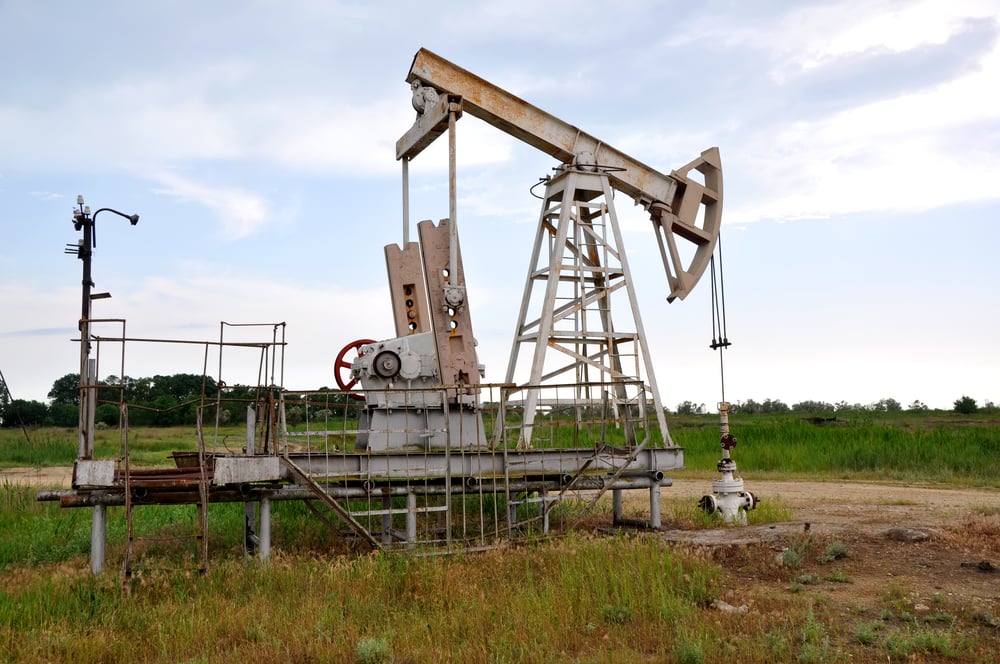The public will be the big losers after coming changes to British Columbia's regulation of oil and gas industry contaminated sites, say critics.
Starting next week, the industry will no longer have to meet contaminated site cleanup requirements set by the Ministry of Environment and Climate Change Strategy, says Donna Forsyth, a retired legislative advisor who worked for the B.C. Environment Ministry from 2006 to 2020.
Instead, industry cleanup rules will be written and enforced by the BC Oil and Gas Commission, a Crown corporation which is wholly funded by industry and was created to promote energy resource development. The board is chaired by Fazil Mihlar, the deputy minister for the Ministry of Energy, Mines and Low Carbon Innovation.
Forsyth said new commission regulations will be similar to previous contaminated site cleanup requirements, but industry funded staff will be enforcing the regulations, instead of government staff.
This creates a “fox guarding the henhouse” situation because the BC Oil and Gas Commission will prioritize the interests of industry over environmental protection, public safety and transparency, Forsyth said.
The changes expand the list of fossil fuel infrastructure the commission is responsible for cleaning up — adding to its previous responsibility for pipelines, other facilities and related activities such as sumps and campsites for oil and gas wells and their sites.
The Oil and Gas Commission previously handled low-risk site cleanup while the ministry handled high-risk sites, but it will now handle all cleanup with no independent oversight, Forsyth says.
The OGC board members will write regulations governing the cleanup process.
Forsyth said that doesn’t provide the same checks and balances and accountability as government regulations, which are generally approved by cabinet or the legislature. That could lead to reduced environmental protecting, she said.
The Ministry of Environment and Climate Change Strategy told The Tyee the changes streamline site remediation.
BC Green Leader Sonia Furstenau told The Tyee the latest move is part of a larger trend in B.C. where government relies on industry expertise for regulation instead of developing and cultivating its own professionals.
Professional reliance started in B.C. in the early 2000s and was a “wholesale shift of oversight of industry out of government hands and into industry-hired qualified professional’s hands,” she said.
That's created “fundamental weakness” for all governments when trying to regulate industry in B.C., she said.
She points to Coastal GasLink’s repeat environmental infractions, and unlicensed dams built to collect water for fracking companies in northeastern B.C. as recent examples of companies breaking the rules and avoiding almost all punishment.
Furstenau said the government's Dormant Sites Reclamation program, which provides $100 million for cleanup, is another example of regulatory failure. Industry, not taxpayers, should be paying cleanup and remediation costs, she said.
Furstenau said allowing an industry body to self-regulate is going in the wrong direction during a climate crisis. The province also approved these changes without properly consulting involved First Nations governments, she said.
When contacted for an interview, the BC Oil and Gas Commission sent The Tyee an email statement saying it “is not writing its own environmental regulations.”
The recent amendment will ensure decommissioned sites are remediated and restored within five years, the statement noted.
“The oversight [the commission] provides goes over and above what is currently required for other sectors and requirements under other provincial environmental legislation, including the environmental protection and management regulation, [that] continue to apply,” reads the statement.
That's technically true, Furstenau says. “However, as we've seen with Coastal GasLink, when a company doesn't adhere to the requirements there doesn't seem to be consequences,” she says.
“This is an existential question for the government to ask itself: What role do we play in the regulation of industry on public land? And are we sufficiently protecting the public interest in how industry is being regulated in this province?”
The BC Liberals were also contacted for an interview but did not respond by deadline.
The change in regulatory authority comes through two bills. One, Bill 17, from May 2019, amended the Environmental Management Act. Bill 21, passed in October, amended the Oil and Gas Activities Act.
The Oil and Gas Commission website says the changes will help it restore more industry infrastructure and allow it to be flexible when it comes to enforcing cleanup timelines.
Furstenau says a better summary is that these changes “further erode the role and capacity of the provincial government to properly regulate the oil and gas industry while keeping public interest at the forefront of decision-making.”
The changes will update the industry's Dormancy and Shutdown Regulation, which governs cleanup of contaminated sites. Forsyth said the regulations used to apply only to decommissioned oil and gas wells, but will now cover all oil and gas sites, including refineries.
She said the commission’s description makes it clear the new regulations won't specify the actual requirements for cleanup, so there's no checklist the public could follow along with to make sure sites are clean and safe.
The description of the proposed regulations suggests the OGC will ask industry to self-report contamination and establish cleanup, Forsyth said. The public will just have to “trust” the industry to report contamination, what chemicals are in that contamination, hire unbiased professionals to clean up the sites and report when cleanup was successful, she said.
That trust is hard to give, says Forsyth, because fracking companies do not have to disclose what chemicals they use during the fracking process — which makes it virtually impossible for anyone to track how well a site has been cleaned up, she says.*
“The only clear and enforceable requirement in these regulations are timelines for the cleanup of the surface sites.”
The OGC says it will require sites to be cleaned up 15 years after becoming dormant, but can grant extensions when needed.
The exemption power only applies to the timeline, not the obligation to restore, the commission noted in its statement to The Tyee.
Forsyth said the OGC doesn't say what criteria would be needed to grant an exemption, and worries exemptions will be handed out too frequently.
She also notes if the commission’s board introduces new regulations, the regulations will not have to move through government checks and balances.
The Environment Ministry said in an emailed statement that parts of the Environmental Management Act and Contaminated Site Regulation still apply to oil and gas sites.
It notes that legislative changes last February help the government to track decommissioned sites. Owners now need to notify government when a site is shut down. Previously government was only notified “if and when” an owner applied for a certificate of site restoration, the ministry said.
“Since February 2021 the ministry can apply regulatory tools in more efficient and timely manner,” the statement read.
Furstenau said the number of gas wells in B.C. will increase if the Coastal GasLink pipeline is completed. And the number of old, unused oil and gas infrastructure sites will increase as the province transitions away from fossil fuels and towards renewables, she added.
Furstenau says the Greens are calling for the province to establish an independent science table, “so we're all starting from a place of common ground and acceptance of facts.”
The idea is to establish the science table for COVID-19-related issues, but it could be expanded to include climate change and fossil fuel industry cleanup, she says.
The OGC is asking for public feedback on the recent change on its website until Jan. 31, 2022.
* Story updated on Jan. 24 at 3:06 p.m. to add additional information regarding oil and gas companies' regulations on public disclosure. ![]()
Read more: Energy, BC Politics, Environment
















Tyee Commenting Guidelines
Comments that violate guidelines risk being deleted, and violations may result in a temporary or permanent user ban. Maintain the spirit of good conversation to stay in the discussion.
*Please note The Tyee is not a forum for spreading misinformation about COVID-19, denying its existence or minimizing its risk to public health.
Do:
Do not: